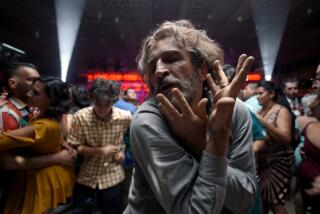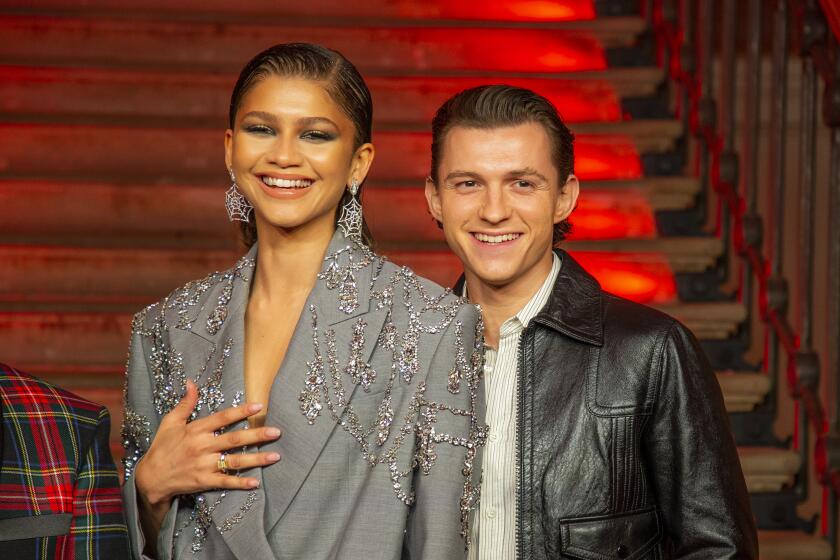Ruiz’s ‘Only One Death’ a Complex, Delicious Fable
Raoul Ruiz’s “Three Lives and Only One Death” is a sly, droll, deliciously intricate fable contemplating the human personality in all its mystery and presenting Marcello Mastroianni with one of his most challenging acting opportunities. In the surreal world of the ever-audacious Ruiz, people are usually not what they seem and fate works more dramatically in the lives of his people than in our own. Yet in heightening human experience Ruiz fires our imagination, asking us to consider the possibility that life is richer, more ironic and darkly funny than we may realize.
The leisurely “Three Lives” is in fact highly demanding. But don’t worry about getting lost in its twists and turns of plot, for everything becomes clear--or reasonably so--in its darkly bravura finale. “Three Lives” doesn’t require another viewing to enjoy it, but surely it would seem lots clearer the second time around and would afford an opportunity to appreciate Ruiz’s skill in foreshadowing. Although operating on a far more intellectual level, “Three Lives” is like an Agatha Christie mystery: In retrospect, you realize there were clues all along.
In essence, Ruiz presents Mastroianni first as a traveling salesman who informs a man (Feodor Atkine) that he is in fact the onetime husband of the man’s wife (Marisa Paredes)--and has been living directly across the street from them in Paris for the last 20 years in an apartment inhabited by fairies with supernatural powers. Then we encounter Mastroianni as a Sorbonne professor (of “negative” anthropology) who abruptly drops out to become a beggar. Then we discover Mastroianni as a butler at a mansion unexpectedly inherited by a poor young couple (Chiara Mastroianni, Marcello’s look-alike daughter, and Melvil Poupaud). In “Three Lives’ ” final sequence, Mastroianni appears as a rich businessman whose imaginary family suddenly materializes in Paris for a visit.
Mastroianni segues from one situation to the next with the bemused aplomb of which he is a master, accepting every amazing development as Ruiz makes us aware of how subjective reality really is. “Three Lives” is an exquisite film that leaves us feeling confounded and disturbed--and suggests that this may well be the right response not only to it but to life itself.
* Unrated. Times guidelines: The film has mature, complex themes.
(BEGIN TEXT OF INFOBOX / INFOGRAPHIC)
‘Three Lives and Only One Death’
Marcello Mastroianni: Mateo Strano, Georges Vickers, the Butler and Luc Allamand
Anna Galiena: Tania
Marisa Paredes: Maria
Melvil Poupaud: Martin
Chiara Mastroianni: Cecile
Arielle Dombasle: Helene
A New Yorker Films release of a co-production of Gemini Films (France), La Sept Cinema (France) and Madragoa Filmes (Portugal) with the participation of Canal Plus. Director Raoul Ruiz. Producer Pablo Branco. Screenplay and dialogue by Ruiz and Pascal Bonitzer. Cinematographer Laurent Machuel. Editor Rodolfo Wedeles. Music Jorge Arriagada. Set designer Luc Chalon. In French, with English subtitles. Running time: 2 hours, 9 minutes.
* Exclusively at the Nuart through Thursday, 11272 Santa Monica Blvd., West Los Angeles, (310) 478-6379.










